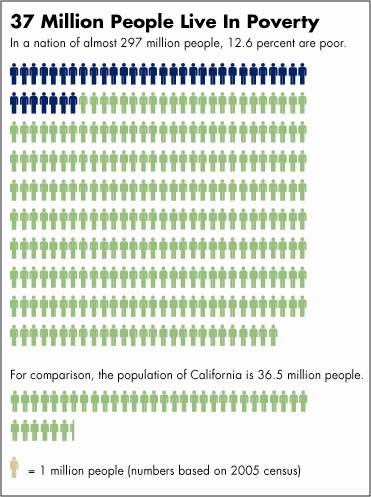You are hereArchive - Jul 4, 2008
Archive - Jul 4, 2008
"These truths to be self-evident, that all men are created equal". $656 bil. for Iraq War? or for 37 mil. Americans in poverty?

(quote)
Today marks the birth of a notion as well as a nation
July 4, 2008
By Jerry Davich Post-Tribune metro columnist
"We hold these truths to be self-evident, that all men are created equal, that they are endowed by their Creator with certain unalienable rights, that among these are life, liberty and the pursuit of happiness."
When in the course of human events, it becomes necessary for a pampered, privileged, and not-so-patriotic newspaper columnist to finally take the time to read his nation's most hallowed document, it must seem like a sad state of affairs, I agree. Yet here I am, a 46-year-old Yankee Doodle Davich who not once has read every word in the Declaration of Independence, arguably the most masterfully written political prose of Western civilization. Oh, sure, I can be a patriotic pretender and regurgitate its revolutionary highlights, such as "self-evident truths," "unalienable rights," and "all men are created equal." But what does that all mean in 2008, in a country that went from 2.5 million people in 1776 to 305 million today, with who knows how many here illegally or what that really means?

In a country that riveted its global identity to become the economic leader, only to predictably lose that title to China. Or which has so far allocated $656 billion for the war in Iraq while millions of Americans go without food, health care, and proper education. And a country which only recently experienced its first "mountaintop moment" regarding civil rights, and possibly the not-so-self-evident truth that all men are created equal.
On June 28, 1776, Thomas Jefferson finished drafting the first version of the Declaration of Independence. On June 28, 2008, I began studying the final version in earnest. On July 4, 1776, the Continental Congress adopted the document, and it later served as an autographed preamble for the birth of a nation. On July 4, 2008, I'd like to use this space as a preamble for the birth of a notion: Between the cookouts, parades, and fireworks, how about we pause to reflect how the Declaration has stood the test of time. And what better time, on the nation's 232nd birthday, to spark a conversation of sovereign thought among free people.
What would they think?
I can't help but wonder what our founding fathers would think of America the Bountiful in the 21st century, in all its hope and hype, gore and glory, fakeness and flag-waving.

Would they condemn, condone, or celebrate a racially mixed presidential candidate? Or a middle-aged woman for that matter? Would they embrace or be aghast over the proliferation of guns? Or the recent Supreme Court ruling on the right to bear arms? Would they be surprised or surly over our global trade agreements with other countries, including the $107 billion of trade each year with the United Kingdom, our adversary in 1776, but our sixth-leading trading partner today? These are the questions I asked myself while reading the Declaration and its 56-signature endorsement.
Also, it seems our founding framers' clear, concise, and candid public declaration in 1776 has been replaced by red, white and often untrue political decoration in 2008, an election year. Rhetoric has replaced reasoning. Sound-bites have replaced sound thinking. Image has replaced imagination. Maybe my star-spangled skepticism seems un-American, but I feel there's a thin line between how we praise a "patriot" versus how we torment a "traitor."
Isn't it still our duty to be the watchdog of government, to secure our life, liberty, and pursuit of happiness, and if necessary to indict our leaders, just as the Declaration indicted King George III? Isn't it our duty to question whether our personal freedoms are being protected, protracted, or politically pawned away? Isn't it our duty to reconsider exactly what defines our so-called unalienable rights? Two centuries later, does the term still adhere to our basic human rights, or do we view them as more national than natural?

Who's a patriot today?
And where does the "Creator" still fit into this 232-year-old marriage between church and state? A recent poll showed an overwhelming majority of Americans are "absolutely certain" that God exists, but many of them don't believe in worshipping on a regular basis. Is there a parallel with those same Americans who genuinely believe in democracy but are not absolutely certain about our government?
And what defines a patriot these days, "a person who loves, supports, and defends his or her country and its interests with devotion," according to my dictionary. Or someone who must symbolically wear an American flag pin to prove it?
On the morning of July 4, 1776, church bells rang out when the Declaration was finally, and formally, adopted. But, I discovered, two statesmen ended up not signing it. John Dickinson clung to the idea of reconciliation with Britain, and Robert R. Livingston thought the Declaration was premature. Today I can only wonder about all the statesmen in 21st century America who would have joined Dickinson and Livingston, refusing to put their necks on the line for the birth of a notion, and a nation.
(unquote)
Images courtesy of Getty Images and Center for American Progress, and paintings by Gilbert Stuart and Arnold Friberg
Original Source: Post-Tribune and Center for American Progress


















